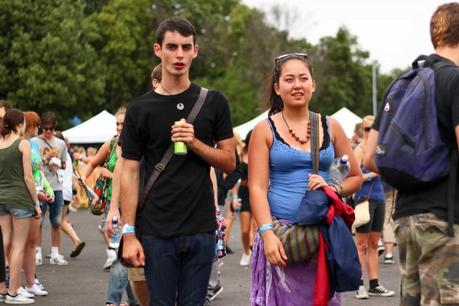
Although the majority of religious people in New Zealand follow some kind of Christian denomination, there are enough non-Christian religious for it to be worth looking at them as a discrete category.
The Spiritualism and New Age movement is perhaps the most interesting group of non-Christians because they are the hardest to categorise. They are like the others in many ways and unlike them in many ways.
Perhaps the most striking set of correlations relating to the non-Christian religious are those with being foreign born. The correlation between being Buddhist and being foreign born was an extremely strong 0.90, and speaks to how little immigration to New Zealand there has been from Buddhist countries until recently.
There was also a significant positive correlation between being foreign born and belonging to any of Islam (0.75), Hinduism (0.74), Judaism (0.41) or other religions (0.34).
Interestingly, though, there was a moderately strong negative correlation between being foreign born and following Spiritualism or New Age traditions – this was -0.45.
Given that it is very likely any given non-Christian religious person is an immigrant, we can also see trends that are true of immigrants replicated with the non-Christian religious. For instance, the non-Christian religious are significantly better educated, especially in the case of Buddhists and Jews.
The correlation between having a Master’s degree and being a Jew was 0.78; with being a Buddhist it was 0.68; with being a Muslim it was 0.37 and with being a Hindu it was 0.34.
However, the correlation between having a Master’s degree and following a Spiritualist or New Age tradition was negative, at -0.07. This is probably because this particular tradition appears to have its own, New Zealand-specific focus and so they are less likely to be from highly educated immigrant groups.
Again replicating the patterns, all of the foreign non-Christian traditions had significant negative correlations with being on the invalid’s benefit, in contrast to Spiritualism or New Age, which had a significant positive one.
Likewise, all of the foreign non-Christian traditions had correlations of at least 0.50 with never having smoked cigarettes, but the correlation between being a Spiritualist or New Ager and never having smoked was -0.41.
All of these five non-Christian traditions had positive correlations with being on the student allowance, which may suggest a generally higher intelligence among this group. The correlation between being on the student allowance and being Buddhist was 0.30; with being Muslim it was 0.29; with being Jewish it was 0.22; with being Hindu it was 0.19 and with being a Spiritualist or New Ager it was 0.18.
Some might be able to predict the very strong correlations being being Buddhist or Jewish and working in one of information media and telecommunications, financial and insurance services or professional, scientific or technical services. Being Buddhist had a correlation of at least 0.55 with all three of these industries and being Jewish had one of at least 0.60 with all three.
One curiosity is when it comes to how people get to work. Hindus and Muslims are significantly more likely to take a private vehicle to work; Hindus, Muslims and Jews are significantly more likely to take a bus to work; Jews, Spiritualists and New Agers are significantly more likely to walk to work and Spiritualists and New Agers are significantly more likely to bike to work.
The fact that Spiritualists and New Agers have a high incidence of being on the invalid’s benefit but are among the most likely to exercise on the way to work speaks of the large proportion of psychiatric casualties among this group.
Here’s one for the conspiracy theorists: the correlation between being a Jew and having a personal income of $150K was a very strong 0.83. The only other non-Christian tradition to have a significant positive correlation with being in this income band was Buddhism, at 0.40.
For Hinduism, Islam, and Spiritualism and New Age the correlations ranged from 0.00 to -0.12.
The main reason for this can be seen if one looks at the correlations between following a particular non-Christian religious tradition and working as a professional. This had a correlation of 0.70 with being Jewish, 0.48 with being Buddhist, 0.13 with being Muslim, 0.12 with being Hindu and 0.11 with being a Spiritualist or a New Ager.
As a general rule, people following a non-Christian religious tradition were marginally more likely to become sales workers or clerical and administrative workers.
*
This article is an excerpt from Understanding New Zealand, by Dan McGlashan, published by VJM Publishing in the winter of 2017.




